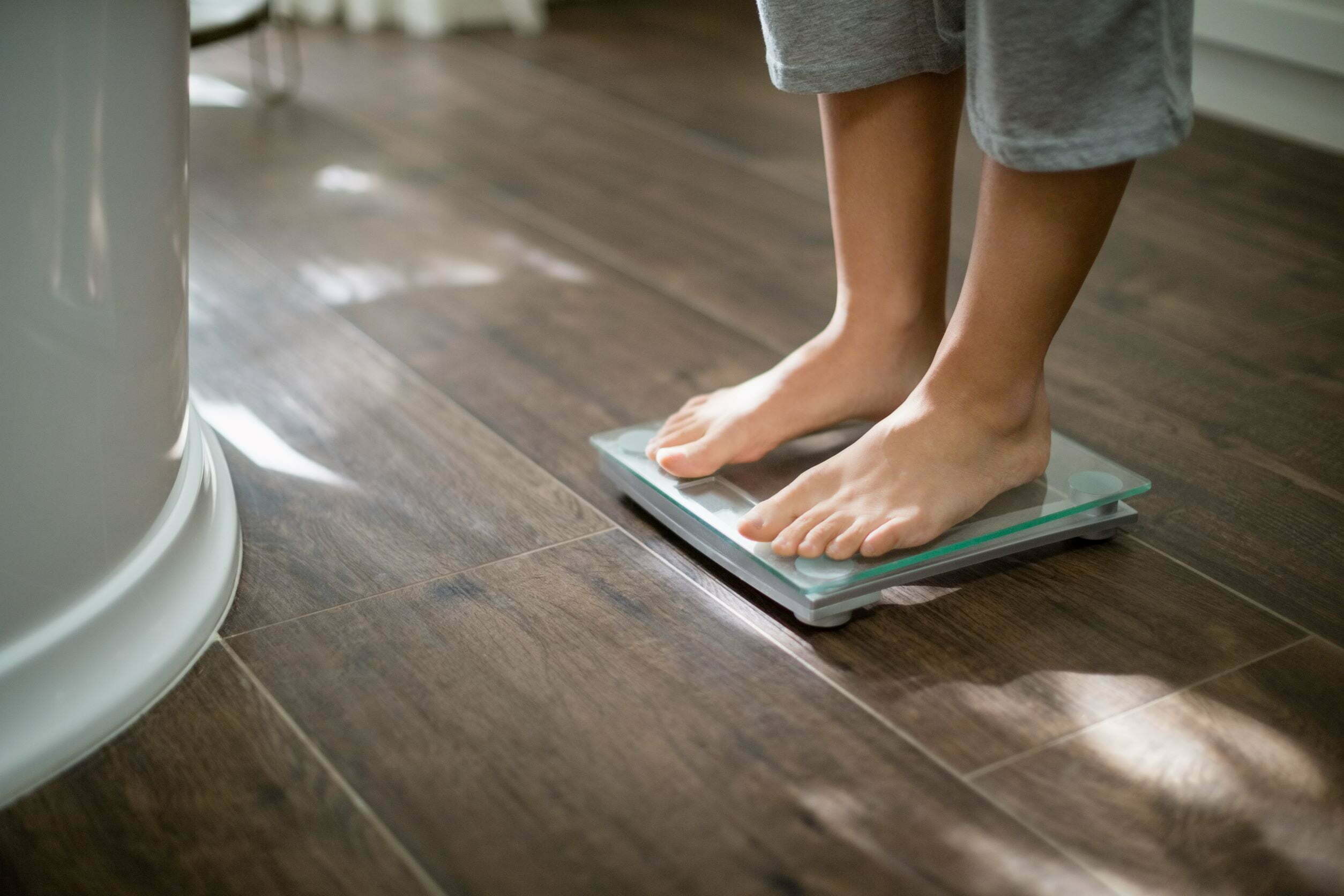Achieving and maintaining a healthy weight is crucial for overall health and can aid in the prevention and treatment of a variety of diseases and conditions. For instance, people with obesity are more likely to develop major health problems such as heart disease, high blood pressure, type 2 diabetes, gallstones, and breathing problems. That is why maintaining a healthy weight is essential: it reduces your chances of developing health problems, makes you feel better about yourself, and gives you more energy to enjoy life. There is no magic formula for gaining or losing weight, but there are a few things you can do to maintain a healthy body. Here are five tips for maintaining a healthy weight.
1. Control your calorie intake
Food high in nutrients yet low in calories are ideal for those who want to lose weight. Our meals must be something we eat to acquire the calories and nutrition we need. Cut down on portion sizes and consume healthy snacks throughout the day to gain weight. The body’s vital organs are vital to our well-being, fitness, energy, and productivity. Those concerned about their health tend to be very careful about what they consume especially if they want to keep their weight in check. Obesity, diabetes, and heart disease are just a few of the health issues that can arise from consuming an excessive number of calories. Foods with a low caloric content contain fewer calories per serving than other foods. Food high in nutrition while low in calories are an excellent choice.
Meal replacement, low carbohydrate-low glycemic index diet, and moderate fat consumption have been demonstrated to help maintain weight. A DASH-style diet which is short for Dietary Approaches to Stop Hypertension diet, may help maintain weight, although additional research is needed. Higher dietary disinhibition and binge eating lead to weight relapse. Reduce fat and refined grains while increasing fiber, whole grains, vegetables and fruits.
Maintaining weight loss requires dietary modifications, including good food choices and lifestyle improvements. Consuming fewer calories appears to help people maintain weight loss. Weight-maintenance foods include gelatin, capsaicin, and green tea. Psychosocial aspects are more closely linked to successful weight loss than the satiety effect or other dietary features. Long-term refeeding may help maintain weight loss achieved with very low-calorie diets. Dietary green tea has little or no effect on weight maintenance.
2. Add healthy snacks if you want to gain weight
According to the British Journal of Nutrition, there is no solid evidence that the frequency with which you eat meals has any effect on the amount of calories you burn. Similarly, there is limited evidence that eating between meals contributes to weight gain or loss.[1] To help you gain or maintain weight, consider including some high-calorie, high-nutrient snacks in your diet. Every day, follow these guidelines to help you reach your weight-gain goals. If you cannot lose weight, ask your doctor to recommend a qualified dietician who can provide you with more tailored advice. Ensure you’re getting at least 8 grams of protein and 5 grams of fat in each meal.
These nutritious snacks are a great way to get your daily serving of fruits and vegetables. A well-thought-out snack schedule allows you to select the healthiest options for gaining weight. Choosing nutritious snacks is easier when you have a strategy in place. Packing your lunch with fresh fruits, veggies, and whole grains is an excellent way to gain weight. Nuts provide a tiny amount of beneficial fats. After all, it is a perfect option because it’s healthy and filling. Some specialists can help you gain weight. You can also hunt for wholesome snacks to take along with you on your journey. It’s also important to avoid foods that may harm your health.
3. Be physically active
It’s best to find ways to have fun while getting some exercise or work on something you enjoy. Try finding an activity that will get you involved with the community. The best way to keep your weight under control is to exercise every day. There are various health advantages to regular physical activity that anybody can take advantage of. A quick walk is generally safe for most individuals, but some people may need to find someone to help for safety reasons. Being physically active can improve your mood, memory, and cognitive abilities while aiding in weight loss and weight control.
If you haven’t worked out in a while, it may be challenging to get back into shape. Your doctor can provide you with advice on how to exercise for better health. At lunch, go for a quick stroll with your dog, and then walk the rest of your commute. Dance, run, swim, bicycle, garden, and do domestic activities to get your heart pumping. Often favorite or preferred physical activities are enjoyed briefly. Why stop early if you enjoy them? Instead increase the duration and frequency of your participation.
4. Seek professional help
Talk to your doctor about your weight if you think that you weigh too much or too little. You can seek professional help from a doctor or registered dietitian (RD) if you need expert advice, nutrition information and helpful tips. Don’t hesitate to ask for their expertise with regards to maintaining your health. Healthcare providers or an RD can provide tips and point you in the right direction for a healthy lifestyle change like maintaining a healthy weight.
Your doctor may suggest a Remote Patient Monitoring (RPM) technology solution to monitor your weight and other physiologic data. RPM is also sometimes known as remote physiologic monitoring. When using RPM your doctor can monitor your weight every time you weigh yourself at home. Using RPM also allows patients to play a crucial role in managing their own health conditions by being more aware of their own health data like weight and other body parameters.
5. Monitor your weight changes and other body parameters
Weigh yourself weekly or anytime you want to take self-measurements. You can try to keep a record of your weight, food, and exercise for a few weeks until you get back on track and maintain that healthy weight. You can also join a weight management program. A good weight management plan should also include regular monitoring of your progress and maintenance of the weight loss or the weight gain in the long term. Reviewing and monitoring your progress can help you identify things you have done well and things you struggle with. With daily engagement and the longer you adhere to your program, the better your long-term success.
Fitness trackers integrated with a remote patient monitoring program have the potential to significantly impact public health. It provides patient information, monitoring, and feedback continuously and in real-time. It can help educate the user and allow healthcare providers to provide support that goes beyond traditional care. DrKumo, leader in Connected Health Technology, provides a smart scale that can measure, record and send multiple body parameters in real-time to the patient’s provider or care coordination team.
Takeaway
For many of us, maintaining a healthy weight might seem challenging. But it doesn’t need to be if we just try to execute healthy habits every day. Whether at home, work, or on the run these small and easy steps can make a positive change toward achieving a healthier life. There are a lot of things we can do to get to a healthy weight, but we have to follow through and stay on track. Starting off with these 5 simple tips can help you reach your goal of maintaining your healthy weight.
References:
- Meal Frequency and Energy Balance – PubMed. (1997, April 1). PubMed. https://pubmed.ncbi.nlm.nih.gov/9155494/.








